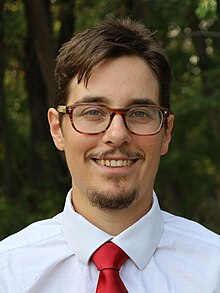
A trans man is a man who was assigned female at birth. Trans men have a male gender identity, and many trans men undergo medical and social transition to alter their appearance in a way that aligns with their gender identity or alleviates gender dysphoria.

Transgender rights in Canada, including procedures for changing legal gender and protections from discrimination, vary among provinces and territories, due to Canada's nature as a federal state. According to the 2021 Canadian census, 59,460 Canadians identify as transgender. Canada was ranked third in Asher & Lyric's Global Trans Rights Index in 2023.
La Leche League International (LLLI) is a non-governmental, non-profit organization that organizes advocacy, education, and training related to breastfeeding. It is present in about 89 countries.

Lactational amenorrhea, also called postpartum infertility, is the temporary postnatal infertility that occurs when a woman is amenorrheic and fully breastfeeding.

Same-sex parenting is the parenting of children by same-sex couples generally consisting of gay, lesbian, or bisexual people who are often in civil partnerships, domestic partnerships, civil unions, or same-sex marriages.

The history and culture of breastfeeding traces the changing social, medical and legal attitudes to breastfeeding, the act of feeding a child breast milk directly from breast to mouth. Breastfeeding may be performed by the infant's mother or by a surrogate, typically called a wet nurse.

Breastfeeding difficulties refers to problems that arise from breastfeeding, the feeding of an infant or young child with milk from a woman's breasts. Although babies have a sucking reflex that enables them to suck and swallow milk, and human breast milk is usually the best source of nourishment for human infants, there are circumstances under which breastfeeding can be problematic, or even in rare instances, contraindicated.

Breastfeeding, also known as nursing, is the process where breast milk is fed to a child. Breast milk may be from the breast, or may be pumped and fed to the infant. The World Health Organization (WHO) recommend that breastfeeding begin within the first hour of a baby's birth and continue as the baby wants. Health organizations, including the WHO, recommend breastfeeding exclusively for six months. This means that no other foods or drinks, other than vitamin D, are typically given. The WHO recommends exclusive breastfeeding for the first 6 months of life, followed by continued breastfeeding with appropriate complementary foods for up to 2 years and beyond. Of the 135 million babies born every year, only 42% are breastfed within the first hour of life, only 38% of mothers practice exclusive breastfeeding during the first six months, and 58% of mothers continue breastfeeding up to the age of two years and beyond.

The social attitudes toward and legal status of breastfeeding in public vary widely in cultures around the world. In many countries, both in the Global South and in a number of Western countries, breastfeeding babies in open view of the general public is common and generally not regarded as an issue. In many parts of the world including Australia, some parts of the United States and Europe, along with some countries in Asia, women have an explicit legal right to nurse in public and in the workplace.

Lactation describes the secretion of milk from the mammary glands and the period of time that a mother lactates to feed her young. The process naturally occurs with all sexually mature female mammals, although it may predate mammals. The process of feeding milk in all female creatures is called nursing, and in humans it is also called breastfeeding. Newborn infants often produce some milk from their own breast tissue, known colloquially as witch's milk.

Breastfeeding promotion refers to coordinated activities and policies to promote health among women, newborns and infants through breastfeeding.

In Western countries extended breastfeeding usually means breastfeeding after the age of 12 to 24 months, depending on the culture.

Diana West is a leading lactation consultant and author specializing on the topic of breastfeeding.

A lactation consultant is a health professional who specializes in the clinical management of breastfeeding. The International Board of Lactation Consultant Examiners (IBLCE) certifies lactation consultants who meet its criteria and have passed its exam.
Transgender pregnancy is the gestation of one or more embryos or fetuses by transgender people. This is possible for those born with female reproductive systems. However, transition-related treatments may impact fertility. Transgender men and nonbinary people who are or wish to become pregnant face social, medical, legal, and psychological concerns. As uterus transplantations are currently experimental, and none have successfully been performed on trans women, they cannot become pregnant.
Breastfeeding and medications is the description of the medications that can be used by a breastfeeding mother, and the balance between maternal health and the safety of the breastfeeding infant. Medications, when administered to breastfeeding mothers, almost always are transferred to breast milk, albeit usually in small quantities. The degree of impact on the nursing infant varies, with many medications posing minimal risk. Nonetheless, informed decision-making and professional guidance is needed.
In breastfeeding women, low milk supply, also known as lactation insufficiency, insufficient milk syndrome, agalactia, agalactorrhea, hypogalactia or hypogalactorrhea, is the production of breast milk in daily volumes that do not fully meet the nutritional needs of her infant.
Mary Ann Kerwin is an American lawyer and breastfeeding activist. One of the seven founders of La Leche League in 1956, she established the Colorado branch of the advocacy group and drafted state laws on behalf of women who breastfeed their infants in public and in the workplace. She was inducted into the Colorado Women's Hall of Fame in 2012.
Breast milk is recommended by numerous health authorities across the world, including the World Health Organization, UNICEF, and the American Academy of Pediatrics, as the optimal exclusive source of nutrition for infants from birth up to six months. Expressing and storing breast milk allows parents to sustain breastfeeding for a longer period of time. However, different storage practices may alter the composition of breast milk, such as variations in fat content, antioxidants, lactoferrin, and immune components. Further, improper handling and storage may increase bacterial growth in breast milk which makes it unsafe for consumption.











